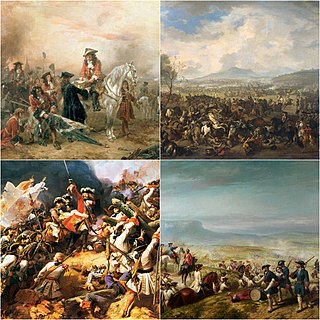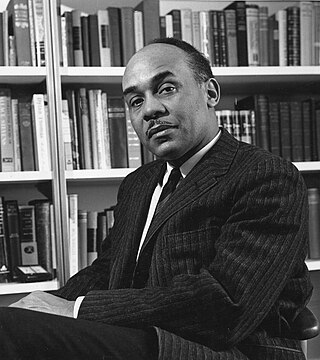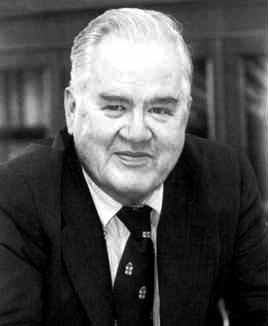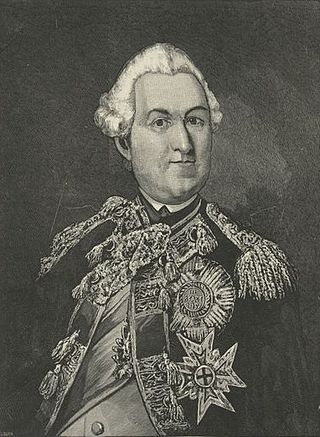
Harlan Jay Ellison was an American writer, known for his prolific and influential work in New Wave speculative fiction and for his outspoken, combative personality. His published works include more than 1,700 short stories, novellas, screenplays, comic book scripts, teleplays, essays, and a wide range of criticism covering literature, film, television, and print media. Some of his best-known works include the 1967 Star Trek episode "The City on the Edge of Forever", considered by some to be the greatest episode of Star Trek ever, his A Boy and His Dog cycle, and his short stories "I Have No Mouth, and I Must Scream" and "'Repent, Harlequin!' Said the Ticktockman". He was also editor and anthologist for Dangerous Visions (1967) and Again, Dangerous Visions (1972). Ellison won numerous awards, including multiple Hugos, Nebulas, and Edgars.

The War of the Spanish Succession was a European great power conflict fought between 1701 and 1714. The immediate cause was the death of the childless Charles II of Spain in November 1700, which led to a struggle for control of the Spanish Empire. His nominated heir was Philip of Anjou, a grandson of Louis XIV of France, whose main backers were France and most of Spain. His rival, Archduke Charles of Austria, was supported by the Grand Alliance, whose primary members included the Holy Roman Empire, the Dutch Republic, and Great Britain. Significant related conflicts include the 1700 to 1721 Great Northern War, and Queen Anne's War in North America.

William Cuthbert Faulkner was an American writer known for his novels and short stories set in the fictional Yoknapatawpha County, based on Lafayette County, Mississippi, where Faulkner spent most of his life. A Nobel laureate, Faulkner is one of the most celebrated writers of American literature and often is considered the greatest writer of Southern literature.

Ralph Ellison was an American writer, literary critic, and scholar best known for his novel Invisible Man, which won the National Book Award in 1953.

Great Britain, officially the Kingdom of Great Britain, was a sovereign country in Western Europe from 1707 until 1801. The state was created by the 1706 Treaty of Union and ratified by the Acts of Union 1707, which united the kingdoms of England and Scotland to form a single kingdom encompassing the whole island of Great Britain and its outlying islands, with the exception of the Isle of Man and the Channel Islands. The unitary state was governed by a single parliament at the Palace of Westminster, but distinct legal systems—English law and Scots law—remained in use.

Charles II was the last Habsburg ruler of Spain. Succeeding his father at the age of three in 1665, he is best remembered for his physical disabilities due to his extremely inbred lineage, and the war that followed his death. While his reign is generally viewed as one of managed decline, many of the problems pre-dated his succession, and he left a Spanish Empire that remained largely intact.

Lawrence Joseph Ellison is an American businessman and entrepreneur who co-founded software company Oracle Corporation. He was Oracle's chief executive officer from 1977 to 2014 and is now its chief technology officer and executive chairman.

John Richard Hersey was an American writer and journalist. He is considered one of the earliest practitioners of the so-called New Journalism, in which storytelling techniques of fiction are adapted to non-fiction reportage. In 1999, Hiroshima, Hersey's account of the aftermath of the atomic bomb dropped on Hiroshima, Japan, was adjudged the finest work of American journalism of the 20th century by a 36-member panel associated with New York University's journalism department.

John Wilder Tukey was an American mathematician and statistician, best known for the development of the fast Fourier Transform (FFT) algorithm and box plot. The Tukey range test, the Tukey lambda distribution, the Tukey test of additivity, and the Teichmüller–Tukey lemma all bear his name. He is also credited with coining the term bit and the first published use of the word software.

John Watts Jr. was an American lawyer and politician from New York City who represented New York in the U.S. House of Representatives.

Sir William Grey Ellison-Macartney, was an Irish-born British politician, who also served as the Governor of the Australian states of Tasmania and Western Australia.
Events in the year 1900 in Ireland.

Rev. David Jayne Hill was an American academic, diplomat and author. He was president of Bucknell College and University of Rochester, both in upstate New York.

Richard Coote, 1st Earl of Bellomont, known as The Lord Coote between 1683–89, was an Irish nobleman and colonial administrator who represented Droitwich in the English Parliament from 1688 to 1695. He was a prominent Williamite, supporting William III and Mary II during the Glorious Revolution.

Karl August Folkers was an American biochemist who made major contributions to the isolation and identification of bioactive natural products.
John Robert McNeill is an American environmental historian, author, and professor at Georgetown University. He is best known for "pioneering the study of environmental history". In 2000 he published Something New Under the Sun: An Environmental History of the Twentieth-Century World, which argues that human activity during the 20th century led to environmental changes on an unprecedented scale, primarily due to the energy system built around fossil fuels.

John Hoadly was an Anglican divine in the Church of Ireland. He served as Bishop of Ferns and Leighlin, as Archbishop of Dublin, and as Archbishop of Armagh from 1742 until his death.
William Ellison Jr., born April Ellison, was an American cotton gin maker and blacksmith in South Carolina, and former African-American slave who achieved considerable success as a slaveowner before the American Civil War. He eventually became a major planter and one of the wealthiest property owners in the state. According to the 1860 census, he owned up to 68 black slaves, making him the largest of the 171 black slaveholders in South Carolina. He held 63 slaves at his death and more than 900 acres (360 ha) of land. From 1830 to 1865 he and his sons were the only free blacks in Sumter County, South Carolina to own slaves. The county was largely devoted to cotton plantations, and the majority population were slaves.

The siege of Pemaquid occurred during King William's War when French and Native forces from New France attacked the English settlement at Pemaquid, a community on the border with Acadia. The siege was led by Pierre Le Moyne d'Iberville and Baron de St Castin between August 14–15, 1696. Commander of Fort William Henry, Captain Pasco Chubb, surrendered the fort. Iberville killed three of the soldiers and sent the other 92 back to Boston.
The Dean of Derry is based at St Columb's Cathedral, Derry in the Diocese of Derry and Raphoe in the Church of Ireland.
















